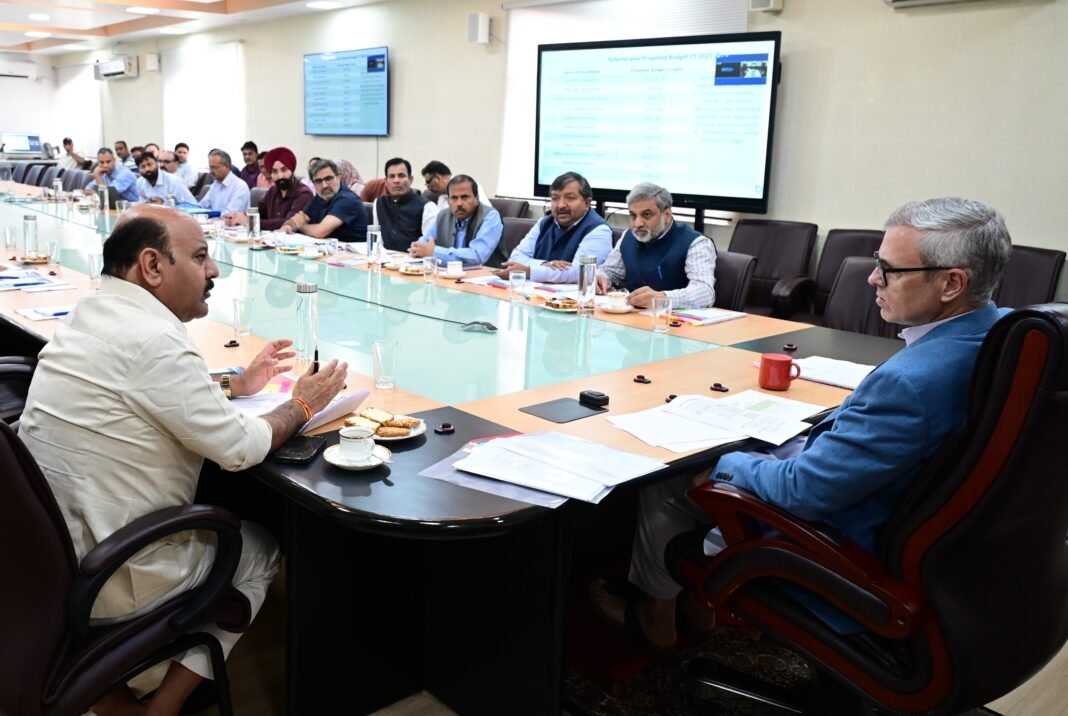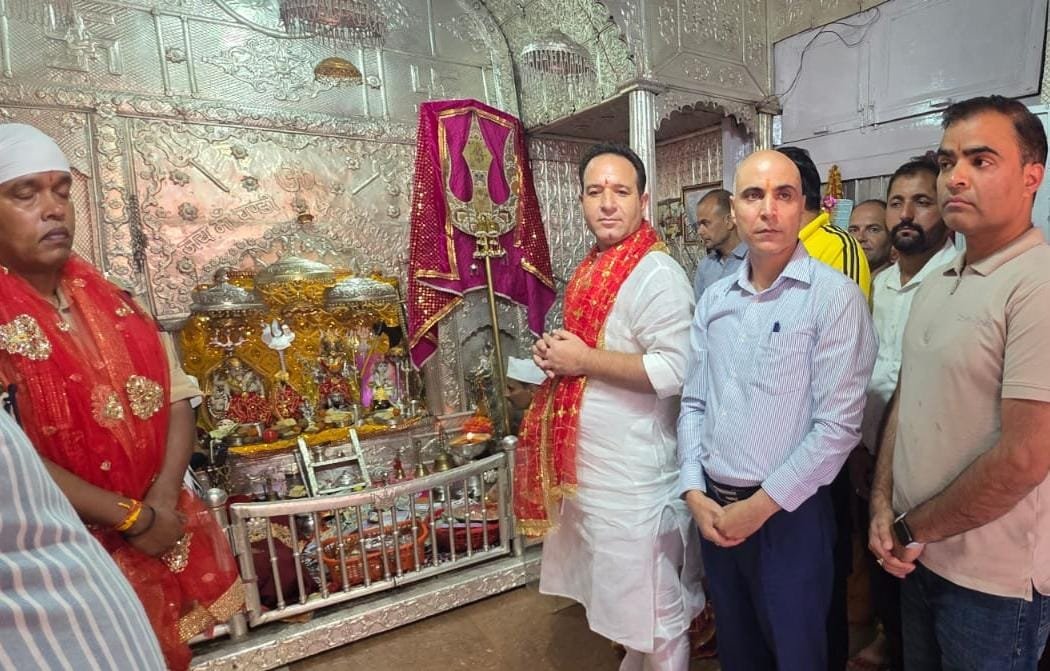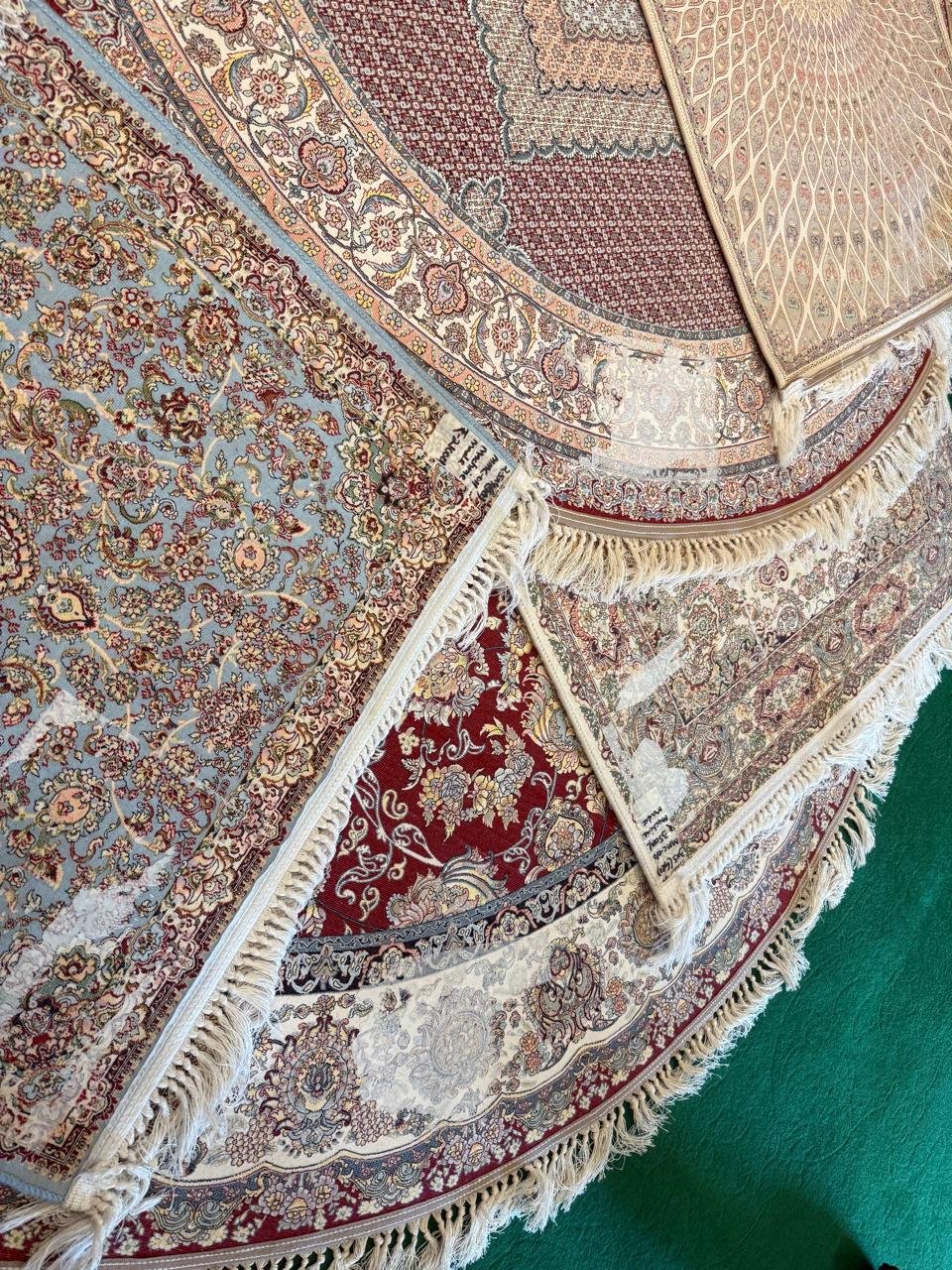CM calls for increasing coverage & socio-economic well-being of workers
SRINAGAR, JULY 25: Chief Minister Omar Abdullah today chaired the 22nd meeting of the Jammu & Kashmir Building & Other Construction Workers Welfare Board (JKBOCWWB) here at the Civil Secretariat.
The aim of the meeting was to comprehensively review the implementation of various welfare measures and approve key initiatives aimed at improving the quality of life for construction workers and their families across Jammu and Kashmir.
Appreciating the strides made by the Board, the Chief Minister lauded its efforts in expanding welfare coverage to over 2.85 lakh active construction workers.
He underscored the importance of transparent, timely and targeted delivery of benefits and directed officials to widen the outreach mechanisms, streamline application procedures, and ensure that no eligible worker is excluded from availing the Board’s benefits.
The Chief Minister also called for a broader and more inclusive definition of ‘construction worker’ to bring within the fold all vulnerable and unorganized sector labourers.
He urged the Board to explore policy mechanisms that would maximize coverage and enhance financial security for workers, in alignment with national best practices and labour welfare standards.
The meeting was attended by Deputy Chief Minister Surinder Kumar Choudhary, Additional Chief Secretary Jal Shakti Shaleen Kabra, Additional Chief Secretary to the Chief Minister Dheeraj Gupta, Principal Secretary Finance, Principal Secretary PWD (R&B), Principal Secretary PDD, Commissioner Secretaries of Housing & Urban Development, Social Welfare, and Cooperatives, Secretary Labour & Employment, Secretary Law, Director General Budget, and representatives of Bhartiya Mazdoor Sangh and Bhartiya Dastkar Union.
Senior officers from the Planning Department and other concerned departments also participated in the meeting.
Secretary Labour & Employment Kumar Rajiv Ranjan gave a detailed presentation highlighting the Board’s key achievements, policy reforms and financial progress.
He informed the members that the Board continues to operate in accordance with the legislative mandate of the BOCW (Regulation of Employment and Conditions of Service) Act, 1996. Under this mandate, the Board has been providing a wide range of benefits including ex-gratia relief in cases of accidental deaths, financial support for both permanent and temporary disabilities, and educational assistance for the wards of registered workers. It also offers one-time meritorious scholarships of ₹50,000 to students securing 90% and above in Class 10 and 12, in addition to marriage and maternity assistance, aid for chronic illnesses, and funeral expense coverage.
To ensure transparency and efficiency, the Board has implemented significant digital reforms. These include 100% Direct Benefit Transfer (DBT) for all financial assistance, Aadhaar integration to eliminate bogus registrations, an online portal for registration and renewals, and OTP-based authentication along with SMS alerts to keep workers informed about key deadlines and updates.
The Board generates income through cess collections and accrued interest. At present, ₹1082.58 crore is currently held as corpus in fixed deposits and savings accounts across various banks.
The Board discussed and approved a comprehensive set of agenda items during the meeting. These included the approval of scheme-wise budget proposals for the financial years 2024–25 and 2025–26, and the transfer of ₹17.24 crore to the Union Territory of Ladakh, in accordance with SO 339 dated October 30, 2020. The audited accounts for FY 2022–23 and 2023–24 were approved and will be forwarded to the Accountant General for certification.
The meeting also approved the integration of the Board’s initiatives with broader social security and financial inclusion schemes to maximize the impact of benefits.
In a significant move towards digital governance, the issuance of smart cards to all registered workers was approved, with a proposed budget of ₹10 crore.
To improve workplace safety, the Board sanctioned ₹60 crore for the provision of Personal Protective Equipment (PPE) kits and tools to construction workers, especially in rural areas. Recognizing the need for skill development, the Board approved short-term training programs for 10,000 workers under NSDC norms, with a budget of ₹10 crore.
Given the overwhelming response to the meritorious scholarship scheme, it was resolved to revise the framework with slabs for top-performing students across all districts based on merit, while maintaining a minimum 90% cutoff. The Board also discussed the long-pending issue of staff regularization and directed the concerned committee to finalize recruitment rules in consultation with relevant departments within six months.
Chief Minister Omar Abdullah, in his concluding remarks, reaffirmed the government’s commitment to ensuring that welfare benefits trickle down to every deserving worker.
He called for forward-looking reforms, robust monitoring and inclusive policymaking tailored to the needs of construction workers, particularly those in remote and underserved areas of Jammu and Kashmir.




